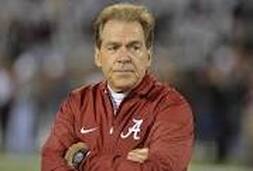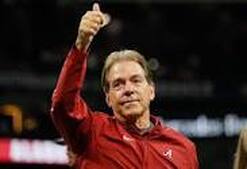In an interview, from The Big Book Of Saban compiled by Alex Kirby, Coach Saban described how his father taught him the fundamentals of life, he has used to shape the football program at Alabama and influence the lives of his players:
"I had great parents. I was extremely fortunate growing up, My Dad had a service station and a little Dairy Queen restaurant, and I started working at that service station when I was 11 years old pumping gas. But in those days‑‑ notice I said it was a service station; it wasn't a self‑serve. So, you cleaned the windows, checked the oil, checked the tires, collected the money, gave the change, treated the customers in a certain way. We also greased cars, washed cars.
The biggest thing that I learned and started to learn at 11 years old was how important it was to do things correctly. There was a standard of excellence, a perfection. If we washed a car, and I hated the navy blue and black cars, because when you wiped them off, the streaks were hard to get out, and if there were any streaks when he came, you had to do it over. We learned a lot about work ethic. We learned a lot about having compassion for other people and respecting other people, and we learned about the importance of doing things correctly."
The core mission of Alabama Football is to serve the players in a manner that makes them better people and teaches them to help others. Coach Saban explained how this core value came from his father:
"My dad was a coach, but he never went to college. But he coached Pop Warner, American Legion baseball, He started out, bought a school bus. We had seven coal mining towns in the county. He would go in each coal mining town, up a hollow somewhere, pick the kids up, take them to practice. Took these country kids that didn't have an opportunity to play, taught them how to be successful, how to compete. The work ethic he taught, the standard of excellence, the integrity that you do things with, the attitude that you carry with you and the character that you carry with you, what you do every day. That certainly is something that has stuck with me."
Just as his father taught the youngsters in the coal mining towns of West Virginia, Coach Saban teaches his players at Alabama. The world is a little better place because of Coach Saban and his father.
Who are you teaching?




 RSS Feed
RSS Feed